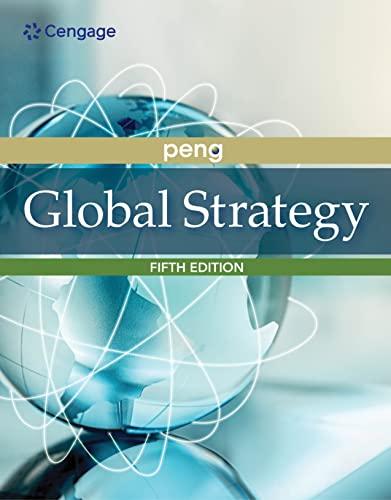Question
REQUIRED: Discuss ALL the questions 1.Which of the following will not be true if exchange rates are determined according to purchasing power parity (PPP)? (a)
REQUIRED: Discuss ALL the questions
1.Which of the following will not be true if exchange rates are determined according to purchasing power parity (PPP)? (a) If two countries have zero rate of inflation, their bilateral exchange rate will be constant. (b) In response to a monetary shock, there will occur a overshooting of exchange rates. (c) The prices of goods will be the same in all the countries when converted at the going rate of exchange. (d) Exchange rate between any two currencies will be equal to the inflation differential between the two concerned economics.
2.While operating a "pegged exchange rate", a government must do which of the following? (a) Use its forex reserves to intervene in the forex market -foreign currency is sold when the domestic currency is in excess supply and foreign currency is bought when domestic currency is in excess demand. (b) Use its forex reserves to intervene in the forex market - foreign currency is bought when the domestic currency is in excess supply and foreign currency is in excess demand. (c) Peg its currency with the strongest currency of the world on voluntary basis. (d) None of the above.
3.Which of the following will be correct if an economy follows a 'floating exchange rate' regime? (a) The exchange rate will adjust to keep the current account deficit/surplus just equal to the capital account surplus/deficit. (b) The government does not need to maintain a forex reserve. (c) For such regime to follow, the economy must maintain more foreign assets than foreign liabilities. (d) The current account deficit must be maintained at the zero level by the economy.
4.One of the following is a correct statement regarding the tradeoff between 'inflation' and 'unemployment': (a) There is a shortrun but not a longrun tradeoff between inflation and unemployment. (b) There is always a tradeoff between inflation and unemployment. (c) There is a longrun tradeoff between inflation and unemployment. (d) There is a longrun but no shortrun tradeoff between inflation and unemployment.
5.What does a shortrun 'Phillips curve' show? (a) The rate of moneywage inflation for each level of possible unemployment and for a specific expected rate of inflation. (b) The rate of moneywage inflation that is generated at fullemployment (c) The rate of moneywage inflation, which was already expected (d) None of the above
6.Why might demand for a firm's product fall and what action could it take in response to such a situation?
7.What is the importance of "branding" in a firm's marketing strategy? [15]
8.Why is the success of a new product difficult to predict?
9.Why do you feel that price is important as an element of the marketing mix? [8]
10.Who should make the pricing decision in a business, the accountant or the marketing director? How the approach to pricing decision might differs?
Step by Step Solution
There are 3 Steps involved in it
Step: 1

Get Instant Access to Expert-Tailored Solutions
See step-by-step solutions with expert insights and AI powered tools for academic success
Step: 2

Step: 3

Ace Your Homework with AI
Get the answers you need in no time with our AI-driven, step-by-step assistance
Get Started


